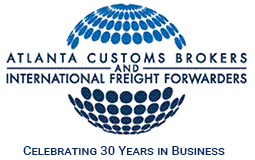5 Steps to Minimize Supply Chain Disruption
It is every business owner’s worst nightmare—getting the call that your shipment will not make it to the dock. With orders piling up, a late shipment has a ripple effect. Without the inventory, you can’t meet production guidelines, negatively impacting sales. Although the shipment might eventually show up, that doesn’t mean your business hasn’t taken a hit.
The truth is that the COVID-19 pandemic demonstrated the importance of having contingency plans in place to minimize the impact of any potential supply chain disruptions due to international freight forwarding.
What needs to be part of your contingency plan? Here are 5 steps to minimize supply chain disruptions throughout your international freight forwarding process.
Invest in the Right Technology
With an up-to-date digital network, you can integrate data from your customers, suppliers, sales team, and manufacturers to understand your current and future inventory needs. Your inventory management software should also allow you to connect with your international freight forwarders and see where your shipments are in real-time. That information can let you know if you need to tap into your contingency plan and work with your second-layer suppliers.
Diversify Suppliers and Manufacturers
Never assume a region will always be environmentally, socially, or politically stable. Look for ways to diversify your suppliers and manufacturers, to map out alternative supply chain opportunities. Recent political changes, including the war in Ukraine and the shifts in relations between China and the United States, have made diversification essential. Even if tapping into alternative manufacturers and suppliers means increased costs, that is often more ideal than not meeting your customers’ needs due to a potential supply chain disruption that leaves you without a key component of your products.
This information can assist you in creating a supply chain emergency plan that focuses on how you move goods around and even set an emergency budget aside to cover overhead costs during the disruption.
Incorporate Risk Management
International freight forwarding involves not only the shipment of finished manufactured goods but it is also a source of raw materials for your production line. Managing your supply chain means understanding all process aspects, from raw materials to finished products.
Managing your risk could involve increasing your backup inventory and conducting a supply chain vulnerability audit. By diversifying your supply base and identifying backup suppliers, you increase your ability to manage your risks of supply chain vulnerability.
When you streamline your supply chain, you decrease the potential for supply chain disruptions. Actively review your supply-side activities, seeking ways to minimize risks while maximizing customer value and your competitive edge. Find areas where you are at greater risk of a supply chain disruption, then put a plan that will help you address that risk effectively.
Upgrade Your Purchasing System
If your purchasing system is still paper-based, then it is time to move to a lower-cost, higher-control automated purchasing system. It can be linked to the relevant functions of your business. You will be able to see where potential issues could arise and take steps to mitigate them.
Managing Your Cash Flow
Your supply chain and your cash flow management are intertwined. Can you conduct cash flow forecasting? That will help you plan how long you can last if there is a disruption anywhere in your supply chain. Do you have the ability to get financing to secure backup financing? If you purchase inventory materials to fill a gap, will you be able to get them promptly? Understanding how much cash you have available to shift an order to another supplier is key. At the same time, if your cash is tied up in inventory for more days than it takes to collect on sales, you might need to focus on accelerating cash collection from your customers.
Working with an international freight forwarding company that effectively understands the logistics of international shipping. Here at Atlantic Customs Brokers, we can assist you in minimizing the potential risks of supply chain disruptions with our effective logistics experts.
Atlanta Customs Brokers is one of the oldest and most trusted customs brokerage and shipping firms in Atlanta. Established in 1985, our company has been a fixture in and around the Atlanta airport and Savannah port for more than 31 years. We enjoy working with our international partners and enjoy what we do. If you are a first-time importer or exporter or a large corporation, we can handle your needs.

